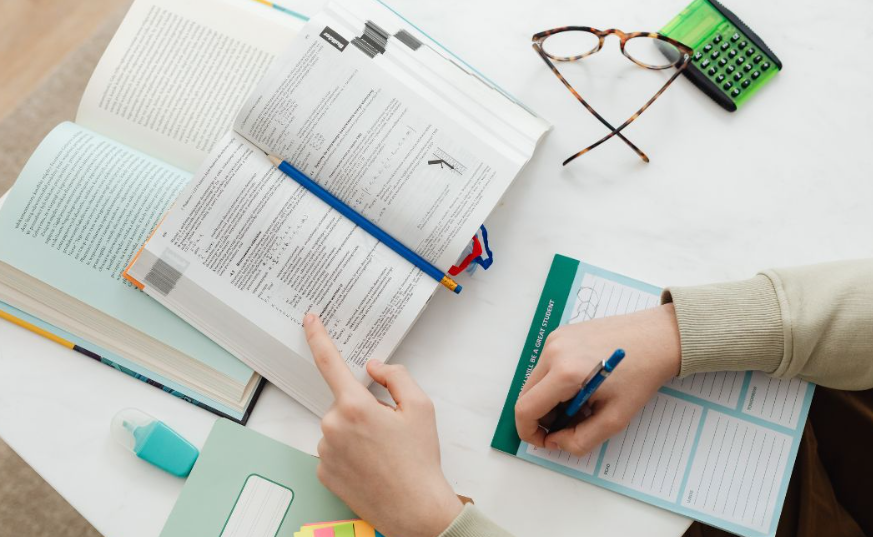Studying effectively is essential for academic success, whether you’re a child just starting school, a high school student, a college attendee, or an adult learner. The right study techniques not only improve knowledge retention but also make learning more engaging and less stressful.
In this article, you will discover a comprehensive range of proven, practical study strategies tailored to suit students of all ages. These methods will help you optimize your learning process and achieve your educational goals with confidence.
Introduction to Effective Study Techniques
Effective studying is about quality, not just quantity. It involves using strategies that help you engage actively with your material, leading to better comprehension and memory. Every learner is unique, but many techniques are universally helpful.
See also: The Future of Education: How Technology is Transforming Learning
Why Study Techniques Matter for All Ages
Good study habits established early help children develop lifelong learning skills. For older students and adults, these strategies can help manage time, reduce stress, and adapt to evolving learning demands.
Setting Up an Ideal Study Environment
Creating a distraction-free zone is critical. Your study area should be quiet, well-lit, and comfortable. Organize your supplies before you begin to avoid interruptions.
The Importance of Goal Setting in Studying
Setting SMART goals (Specific, Measurable, Achievable, Relevant, Time-bound) helps focus your study sessions and track your progress, turning vague ambitions into achievable tasks.
Time Management Strategies for Students
Plan your study time by prioritizing subjects and breaking tasks into smaller pieces. Techniques like time blocking and scheduling prevent procrastination and improve productivity.
Active vs. Passive Learning: What Works Best?
Active learning—such as summarizing content, teaching others, or applying knowledge—is far more effective than passive learning, like reading or highlighting without engagement.
Note-Taking Methods for Better Retention
Effective note-taking methods include:
- Cornell Method: Divides the page into notes, cues, and summaries.
- Mind Mapping: Visualizes relationships between ideas.
- Outlining: Organizes material hierarchically.
These techniques help process and remember information more effectively.
Mind Mapping and Visual Learning Tools
Visual aids like mind maps, charts, and diagrams help learners make connections and remember complex concepts, particularly useful for visual learners.
The Pomodoro Technique for Focused Study Sessions
This method involves studying in focused intervals (usually 25 minutes) followed by short breaks (5 minutes). It enhances concentration and prevents burnout.
Using Technology Wisely to Enhance Studying
Educational apps, digital flashcards, and planners can enhance study efficiency, but it’s important to limit distractions from social media and unrelated apps.
Memory Techniques: Mnemonics, Chunking, and More
Memory aids include:
- Mnemonics: Creating acronyms or phrases.
- Chunking: Breaking information into smaller groups.
- Spaced Repetition: Reviewing material at increasing intervals.
These improve recall significantly.
Reading Strategies for Deeper Comprehension
The SQ3R method (Survey, Question, Read, Recite, Review) encourages active engagement with reading material, resulting in better understanding and retention.
Practice Testing and Self-Quizzing
Regularly testing yourself helps identify weak spots and reinforces learning more effectively than passive review.
Group Study: Benefits and Best Practices
Group study can offer support and alternative perspectives but should be structured with clear goals and boundaries to avoid distractions.
The Role of Sleep and Nutrition in Learning
Adequate sleep consolidates memory and maintains cognitive function. Balanced nutrition fuels the brain for optimal performance during study sessions.
Overcoming Procrastination and Study Anxiety
Break down tasks, use positive affirmations, and incorporate relaxation techniques like deep breathing to reduce anxiety and stay on track.
Study Techniques for Young Children
Young learners benefit from short, playful study sessions, repetition, and visual aids to keep engagement high.
Effective Study Habits for High School Students
High schoolers should balance extracurriculars and studies, develop independent routines, and focus on prioritizing tasks.
College and University Study Strategies
At this level, critical thinking, detailed note-taking, research skills, and deadline management become essential.
Adult Learners: Balancing Study with Life
Adults need flexible schedules, clear goals, and to leverage their experiences to connect with new learning material.
Adapting Study Techniques for Different Learning Styles
Knowing whether you learn best visually, auditorily, kinesthetically, or through reading/writing helps customize your study approach for maximum impact.
Using Rewards and Motivation to Stay on Track
Incorporate small rewards like breaks or treats to maintain motivation and celebrate milestones.
Tracking Progress and Adjusting Study Plans
Regular self-assessment lets you refine your methods and focus on what works best for you.
Common Study Mistakes to Avoid
Avoid multitasking, cramming, passive reading, and neglecting rest, as these habits hinder effective learning.
Conclusion: Making Study Techniques Work for You
Studying effectively is a personal journey. Experiment with different methods, stay consistent, and adjust as needed. With patience and the right strategies, students of any age can excel academically.
Frequently Asked Questions (FAQs)
Q1: How can I stay motivated to study regularly?
Set clear goals, break study sessions into manageable parts, and reward yourself for progress.
Q2: What is the best time of day to study?
Identify your peak focus times, which differ for everyone, and schedule sessions accordingly.
Q3: Can group study be distracting? How to avoid it?
Yes, to avoid distractions, set clear agendas and study with disciplined peers.
Q4: How important is sleep for studying?
Sleep is vital for memory consolidation and maintaining focus during study.
Q5: What tools can help improve study habits?
Apps like Anki for flashcards, Evernote for notes, and timers for Pomodoro sessions are excellent aids.


